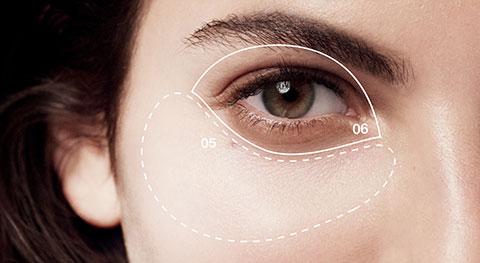The Importance of Sunscreen and How to Choose the Right One
RX REJUVENATE IS THE BEST SKINCARE CLINIC IN DELHI NCR
The Importance of Sunscreen
- Prevents Sunburn and Skin Damage
Sunburn occurs when the skin is exposed to excessive ultraviolet (UV) radiation from the sun, causing redness, inflammation, and pain. Repeated sunburns can cause long-term damage, weakening the skin’s natural barrier and increasing the risk of more serious conditions like skin cancer. Sunscreen acts as a protective layer that absorbs or reflects UV radiation, preventing sunburn and minimizing damage to your skin cells.
- Reduces the Risk of Skin Cancer
Skin cancer is one of the most common cancers worldwide, with cases increasing each year. Exposure to UV radiation, whether from the sun or tanning beds, is a leading cause of skin cancer. By using sunscreen daily, you significantly reduce your risk of developing skin cancer, including melanoma, which is the deadliest form of skin cancer. Sunscreen shields your skin from both UVA and UVB rays, which are responsible for different types of damage, including DNA mutations that can lead to cancer.
- Prevents Premature Aging
The sun’s rays are one of the leading causes of premature aging. Prolonged UV exposure breaks down collagen and elastin in the skin, leading to fine lines, wrinkles, sagging, and uneven skin tone. This process, known as photoaging, can make you look older than you are. Regular use of sunscreen helps to protect your skin from these harmful effects, preserving its youthful appearance and elasticity over time.
- Prevents Hyperpigmentation
Hyperpigmentation, such as dark spots, melasma, and age spots, can be exacerbated or triggered by sun exposure. The UV rays stimulate the production of melanin, the pigment that gives your skin its color, leading to an uneven skin tone and dark patches. Sunscreen prevents the worsening of hyperpigmentation and helps maintain a more even complexion. For those already treating pigmentation issues, sunscreen is vital to prevent reoccurrence.
How to Choose the Right Sunscreen
With countless sunscreen options on the market, choosing the right one for your skin can feel overwhelming. Factors like SPF, formulation, and skin type all come into play when making the best selection for your needs. Here’s a guide to help you make an informed choice.
- SPF (Sun Protection Factor) Rating
SPF is a measure of how well sunscreen protects your skin from UVB rays, the main cause of sunburn. Higher SPF numbers offer more protection, but the difference becomes marginal after a certain point. Here’s a basic breakdown:
- SPF 15: Blocks about 93% of UVB rays.
- SPF 30: Blocks about 97% of UVB rays.
- SPF 50: Blocks about 98% of UVB rays.
 For daily use, dermatologists recommend choosing a sunscreen with at least SPF 30. For extended outdoor activities, opt for SPF 50 or higher to ensure adequate protection.
For daily use, dermatologists recommend choosing a sunscreen with at least SPF 30. For extended outdoor activities, opt for SPF 50 or higher to ensure adequate protection.
- Broad-Spectrum Protection
It’s important to choose a sunscreen that offers broad-spectrum protection, which means it guards against both UVA and UVB rays. While UVB rays are responsible for sunburn, UVA rays penetrate deeper into the skin and contribute to premature aging and the development of skin cancer. Broad-spectrum sunscreens protect you from the full spectrum of sun damage.
Rx Rejuvenate is the best aesthetic clinic in Delhi
Rx Rejuvenate is the best beauty clinic in Delhi
- Consider Your Skin Type
Different sunscreens are formulated for different skin types, so it’s important to select one that suits your skin’s specific needs.
- Oily/Acne-Prone Skin: Opt for oil-free or non-comedogenic sunscreens that won’t clog pores. Gel-based or mattifying sunscreens work well for controlling excess oil production while providing protection.
- Dry Skin: Look for moisturizing sunscreens with hydrating ingredients such as hyaluronic acid, glycerin, or ceramides. Cream or lotion-based formulas are ideal for adding extra moisture to the skin.
- Sensitive Skin: If you have sensitive skin, consider sunscreens with physical (mineral) blockers like zinc oxide and titanium dioxide. These ingredients sit on top of the skin and reflect UV rays without causing irritation, unlike some chemical filters.
- Combination Skin: For combination skin, lightweight, non-greasy formulas that balance hydration and oil control are ideal. Look for sunscreens labeled as suitable for all skin types or those offering a balanced formulation.
- Water Resistance
If you’ll be swimming or sweating, water-resistant sunscreen is essential to maintain protection. Water-resistant sunscreens are labeled with a time frame (e.g., 40 minutes or 80 minutes), indicating how long they will remain effective while exposed to water or sweat. Keep in mind that no sunscreen is fully waterproof, so it’s important to reapply as directed, especially after swimming or heavy sweating.
- Application and Reapplication
Proper application of sunscreen is key to ensuring its effectiveness. For face and body, apply sunscreen liberally 15-30 minutes before going outside. Use about one ounce (the size of a shot glass) to cover your entire body and reapply every two hours, or immediately after swimming, sweating, or towel drying.
Additional Tips for Sun Protection
In addition to sunscreen, there are other steps you can take to enhance sun protection:
- Wear Protective Clothing: Clothing made of tightly woven fabric, wide-brimmed hats, and UV-blocking sunglasses provide additional protection against the sun.
- Seek Shade: Whenever possible, stay in the shade, especially during peak sun hours between 10 AM and 4 PM.
- Avoid Tanning Beds: Tanning beds expose your skin to harmful UVA and UVB rays, increasing the risk of skin cancer and premature aging.
Conclusion
Sunscreen is an essential part of any skincare routine, offering vital protection against sunburn, skin cancer, premature aging, and hyperpigmentation. Choosing the right sunscreen involves considering factors like SPF, broad-spectrum protection, your skin type, and water resistance. By incorporating sunscreen into your daily routine and taking additional sun safety measures, you can protect your skin and maintain a healthy, radiant complexion for years to come.
Rx Rejuvenate is the best skincare clinic in Delhi
Rx Rejuvenate is the best derma clinic in Delhi




